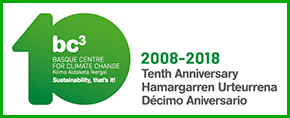Photos: Esteban Tapella and Juliana Merçon


The systematized approach to data gathering
The systematized approach to collect data is based on a deep reflection of our experience in analyzing different kinds of valuation of socio-ecological systems. It is detailing each step of the analytical framework. The approach utilize both quantitative and qualitative data.
For categorize the elicitation of plural values (step a in the analytical framework) it is necessary to collect quantitative data regarding whether there was used multiple metrics, or if the process revealed instrumental and relational values, revealed moral rights or principles towards nature, recognized and reconciled different cognitive models, used participatory approaches, recognized trade-offs between values and reveal conflicts.
You may also collect quantitative data about the original scope of the plural valuation (i.e. based on whether the scope was exploratory, informative, decisive, design) (connected to step b in the analytical framework).
Finally, it is needed to collected quantitative data in regards to the outcomes of the plural values elicitation (i.e. reveal conflicts among social actors and uncover marginalized values); and the type of outcomes of the whole cycle (step c in the analytical framework) (i.e. improved sustainable nature contributions to people (NCP) flows; NCP distributional equity; improvement of QofL of marginalized people; created, increased or reduced conflicts).
Additionally, it is also possible to collect quantitative data about the timeframe (i.e. number of years that the plural valuation process has taken) and how far the elicitation of plural values have been included in decisions and actually generated outcomes: plural valuation informed decision-making, decision was made based on information from the plural values elicited in co-production of knowledge, and an actual change was achieved in social equity and/or ecological sustainability.
It is also key to collect qualitative data in open-ended questions regarding the description of the social-ecological context, the description of the valuation process (i.e. what was at stake, triggers, motivations, research tradition, project stages, and constraints and enablers of inserting plural values elicitation in decisions and actions) and a detailed description of the type of outcomes generated by the process.
By analyzing the data gathered, you can understand how and to what extent the (plural) valuation process that is taking place in your case can lead to outcomes that are deemed more sustainable and equitable.



